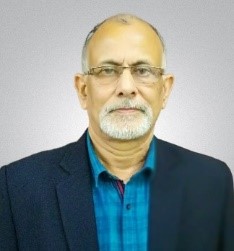Promotion of Tissue Culture Banana var. Grand Naine
Venue: Marapara Village, Dalu Block, West Garo Hills, Meghalaya
Date: May 16, 2025
he ICAR-KVK, West Garo Hills, Meghalaya successfully conducted an Input Distribution Programme under the TDC-NICRA initiative at Marapara village, aiming to promote climate-resilient horticulture among tribal farmers through the introduction of tissue culture Banana var. Grand Naine. The event was graced by Dr. Monica Suresh Singh (Senior Scientist & Head), who highlighted the significance of using quality, disease-free planting material, which ensures uniform growth, reduces pest incidence, and enhances yield. Dr. Tarun Kumar Das (CTO – Agricultural Extension) emphasized the inclusion of banana in the Integrated Farming System (IFS) model, noting that tissue culture plants offer higher yields and better market value compared to traditional sucker-grown plants. He encouraged farmers to adopt this model to enhance resource use efficiency and ensure steady year-round income. Further, Mr. N. Arun Kumar Singh (SMS – Soil Science) discussed the scientific production technology of banana, stressing the role of soil health and proper nutrient management in achieving optimal yield. He underlined the importance of maintaining soil fertility and adopting climate-smart practices to achieve sustainable yield levels under changing agro-climatic conditions. A total of 47 farmers participated actively in the programme, receiving a total 1450 high-quality tissue culture Grand Naine saplings. This intervention aims to strengthen the IFS model, ensure year-round income generation, and promote climate-resilient farming practices. The programme was efficiently coordinated by Dr. Sanjay Chetry (YP-II, NICRA), ensuring smooth execution and active engagement of participants. Farmers expressed their appreciation and enthusiasm toward adopting tissue culture banana, recognizing its potential to transform traditional farming practices into more productive and resilient systems. The programme marks a key step toward sustainable horticulture and supports NICRA’s mission of promoting climate-resilient, income-generating technologies for vulnerable farming communities
 |
 |
 |
 |


